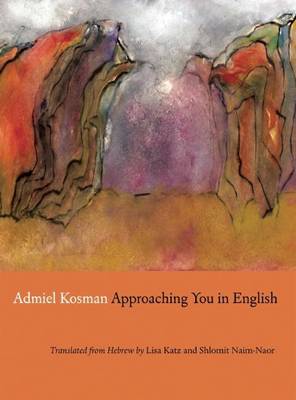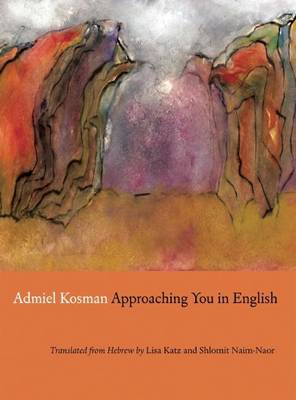
- Retrait gratuit dans votre magasin Club
- 7.000.000 titres dans notre catalogue
- Payer en toute sécurité
- Toujours un magasin près de chez vous
- Retrait gratuit dans votre magasin Club
- 7.000.0000 titres dans notre catalogue
- Payer en toute sécurité
- Toujours un magasin près de chez vous
Description
"Verses to be added to the end of Deuteronomy"
Are you kidding, let it be,
just write that we were born, we were here,
and we drowned in the sea.
That's enough. Keep the final verses
short, in your generosity, just hint that it's bad here,
without love, in the desert, the old people grumbling,
even dying all the way here,
a long journey and contention.
And the day-old baby of the homeland -- hatred --
the baby of the homeland, and its mother -- longing,
and the baby of the homeland,
swallowing oatmeal and milk, some more,
dying and hunger.
Write concisely about murder and blood,
just hint at a people and a homeland,
keep it short, in your generosity (let it be),
and remind the reader
that we drowned in the sea.
Admiel Kosman is one of Israel's most prominent contemporary poets, with eight books of poetry to his credit, and several more of prose. His work evokes multiple tensions between prayer and modern life, sacred texts and eroticism, war and peace, language and translation. After teaching at Bar Ilan University in Israel for many years, Kosman moved permanently to Berlin, where he is now professor of religious studies at Potsdam University and heads the first Reform rabbinical college in Germany to resume operations after the Holocaust.
Lisa Katz is the author of Reconstruction (Am Oved) and the translator of Look There: New and Selected Poems of Agi Mishol (Graywolf Press). Her poems, translations, essays, and reviews have appeared in scores of publications, and she is the translation coordinator for the Jerusalem International Poetry Festival. In 2008, she won the Mississippi Review Poetry Prize. She teaches at the Hebrew University of Jerusalem, and frequently lectures abroad.
Shlomit Naor, born in Raanana, Israel, in 1974, is an educator and published poet. She holds an MA in creative writing from Ben Gurion University and a BA in philosophy and literature from the Hebrew University in Jerusalem.
Spécifications
Parties prenantes
- Auteur(s) :
- Traducteur(s):
- Editeur:
Contenu
- Nombre de pages :
- 144
- Langue:
- Anglais
- Collection :
Caractéristiques
- EAN:
- 9780981552149
- Date de parution :
- 15-11-11
- Format:
- Livre broché
- Format numérique:
- Trade paperback (VS)
- Dimensions :
- 152 mm x 203 mm
- Poids :
- 181 g

Les avis
Nous publions uniquement les avis qui respectent les conditions requises. Consultez nos conditions pour les avis.






